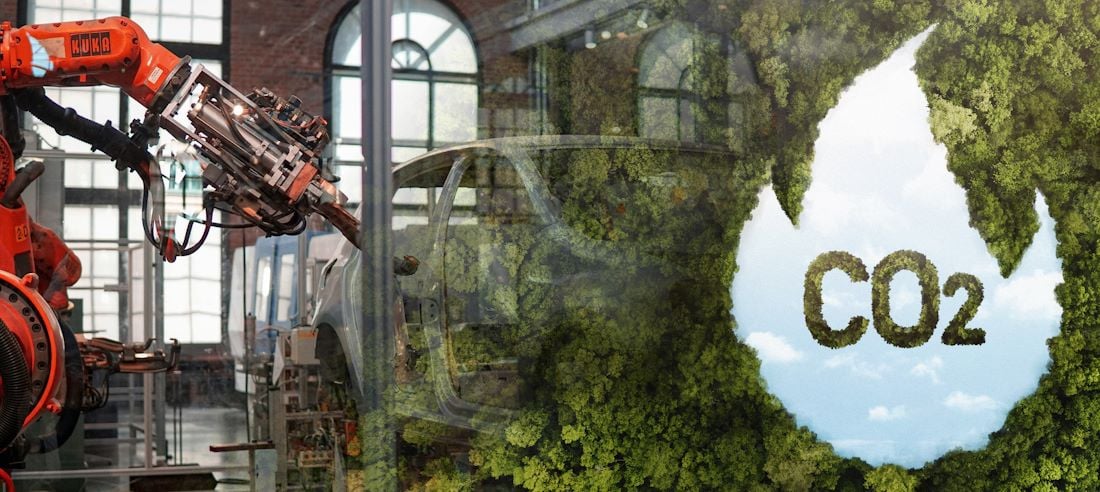knowtheflow: Marjolaine, you work for the French organization GERES, which deals with promoting energy efficiency.
Marjolaine Boitard: Yes, it was founded in 1976 after the oil crisis.
And you spent a year in Tajikistan, researching domestic energy consumption. I imagine that a Tajik household is very different from a French one.
Yes, I used to spend 2-3 days a week with 20 Tajik families in two different regions. And actually, even between these two regions, you can see a difference. Tajikistan is a mountainous country and just from one valley to another you can note big differences. For sure, between France or Europe on one side and Tajikistan on the other, there are numerous differences – so many that I don’t know where to start…
In Europe, for example, the biggest share of energy consumption in a household is heating.
Yes, also in Tajikistan 80 percent of the energy is used for heating. And 20 percent for cooking. Electricity is usually only available for a few hours a day, so we can neglect that.
“When there is no forest, people take bushes”
What’s the main source of energy?
Wood. It is used everywhere and when there is no forest, people take bushes. In some places you also find inexpensive coal in a very bad quality. In that case, people use coal. But this is only for heating. For cooking, they still use wood.
And your job was to evaluate how efficient the various types of ovens and stoves are?
My job was to know which fuel people are using for which purpose and in which stove. In a house, you have many stoves, one to heat, one to cook, and a third one to bake bread. Between these three different stoves we tried to find out which fuel is used where, in which season. For example, maybe in summer and in winter you don’t use the same fuel to bake bread. It is exactly the same use, but you don’t use the same fuel.
Why is that?
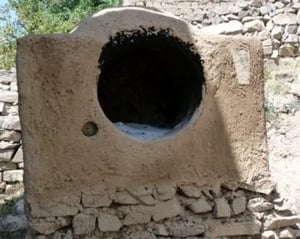
For instance, to bake bread in summer, Tajiks in remote areas use manure. That’s less available in winter because pastures are covered with snow. In this case you would use bushes or stickwood. The reasons why people use fuel or not are very specific, so you have to live with the people for some time in order to understand it.
“Insulation is the most important thing to do, just like in Europe”
That makes sense. After all your time with the local people in the village, do you have any vision to reduce their energy consumption? Are they aware that they use energy, or are they only aware of the time it takes to collect the wood?
They are aware that they are using energy because during the time of the Soviet Union they were given coal almost for free. Houses were heated a lot; the temperature was high even if the houses weren’t insulated well. But after the collapse of the Soviet Union, people had to realize the need to buy fuel, so yes, they understood the difference. But when you see how poorly the houses are generally insulated, you get the picture that Tajiks don’t have an idea of energy efficiency. Actually, the best way to increase the energy efficiency of households in Tajikistan is to improve the insulation of housing, before implementing different stoves. So insulating is the most important thing to do, just like in Europe. But the main barrier here is the Russian influence – Many Tajik men migrate to work in Russia. They bring back the idea that a Russian house is a good house. But is only suitable for Russia, where you have cheap energy in abundance. Before the Soviet period, the house’s insulation was adapted to the climate; they were made with local materials, clay, straw, rocks and wood. But under the influence of the Soviets, people began to use cement buildings and they keep wanting this style of building, just because it looks more fashionable. It is very difficult to tell them “You have all the necessary material to build a good and efficient house here” – they don’t want it, because it looks poor. Face is very important here. If you look poor, it’s very bad. They prefer to have a non-insulated house looking like a Russian one, over an insulated Tajik house. I generalize here – this is not valid for everyone – but it is the main feeling that we have.
Are there initiatives to change that?
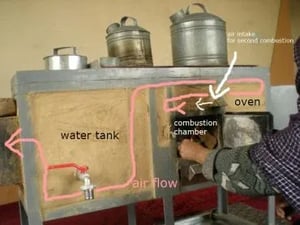
Yeah, there are some NGOs working on that. Little Earth is working on this topic, for instance. There are some Norwegians working on straw houses to show people it’s still possible [Naturvernforbundet]. But the main problem is the dissemination. There are many organizations working on energy efficiency, because it’s the main problem. The NGO comes, shows the people how to improve houses and stoves, but there is no follow-up. Just after the NGOs leave, there is no application, so you have ten insulated houses in a village and that’s it, the rest of the people continue to build inefficient houses. If you’re not following up on the project – that means to continuously explain and show why insulation makes sense, and spend a lot of time with the people – there is a lack of effectiveness.
There’s a lot of work left for energy efficiency of buildings, but in transport, for example, I have the impression that things run efficiently. There are no overland buses, but the cars (mainly shared taxis and minibuses) are filled up with as many passengers as possible. Even when there are two seats, three or four persons sit on them, so per capita fuel consumption for transport is low.
I guess they are more poor than environmentally friendly…
“Too poor to pollute”
But in the end, it’s an efficient mode of transport, right?
At GERES, sometimes we say, there are countries too poor to pollute. As soon as they earn money, people will be alone in the Mercedes. When you are poor, you cannot pollute.
Are you only working with individual persons or also focusing on businesses?
In Tajikistan we are just working with individual persons now, but the aim is to create a cooperative to facilitate people building stuff themselves, improved windows for instance. Through the community, through the cooperative, the work is done, and GERES will just monitor to check whether it’s well done. To show how to do it, we will maybe produce the first 100 stoves. The combustion chamber and the door of the GERES stove are very small, for example, because big pieces of wood are less efficient. In case the cooperative wants to “improve” the stove and it designs a bigger stove door, the design would lose its efficiency. So we will stay at the top to check whether it’s done correctly, whether the developed tool is really efficient.
And in France?
We work with individuals, but also with public institutions, the Départements, the regions, and schools. We try to raise awareness for environmental topics, conduct composting trainings, for example, and offer carbon neutralization through our projects. Another activity in France is the espace info energie (energy information space); in every Département, there is one. Here, we give independent advice to people who want to invest in energy efficiency for their own house or business.
“GERES has a passive greenhouse design, where you don’t need any heating”
Back to Tajikistan. Apart from insulating the houses where people live, you try to give locals an opportunity to develop a business in agriculture?
Yes, there are two main goals. The first is to improve energy efficiency through insulation and improved stoves, as I said before. The second topic is to set up a small business with passive greenhouses. Because winters here are hard, as soon as you have a greenhouse, you will heat it with an inefficient stove. It would be run with coal, manure or wood. But GERES has a passive greenhouse design where you don’t need any heating. The design started to be applied in Ladakh, in the north of India and the replication was very good, actually. After that, GERES decided to spread it to other cold countries.
And I heard that sometimes people don’t use their greenhouse only for agriculture?
No matter what you intended to do, you can be sure to find a different story at the end. You expect that people grow vegetables, for instance. Let’s take one story that happened in a passive greenhouse project in Afghanistan, for example. It was designed for self-sustaining food production. The project duration was limited. In this period, people grew vegetables, just like they were supposed to, because the project frame and the funding said to do so. But as soon as the official project is over, a sensitive time starts. We call it dissemination of the tool. After the end of the project, people were planting whatever they want. In Afghanistan they planted roses, in order to earn money to buy the food on the bazaar.
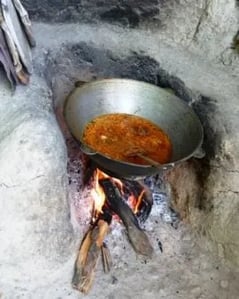
When farmers move into the new stable themselves…
In Tajikistan, we introduced a solar poultry farm. But the poultry farm was actually much more energy efficient and comfortable than the potential poultry farmer’s home. So the guy moved into his new farm building. Our local partner NGO was so embarrassed by this fact that it gave him the chickens for free, telling him not to live in the farm building. However, it’s a good example to show the rest of the village how efficient houses could be just with local building materials. The locals were ready to have a Tajik-style house for chickens, but not for people.
So the farmer moved out of the hen house?
Yes, the local organization gave him like 200 chickens for free, and now that he has the chickens, he moved out, back into his house. But the problem is, after this, everybody in the village wants a solar poultry farm because they think they’ll get the hens for free…
It is also crazy to see where the chicken on offer at shashlik grills all over the country comes from. Brazil and the US export frozen chicken that comes into the country by airplane. Then the boxes of frozen chicken get delivered to the grills and restaurants, mostly on the roof of a shared taxi or in a private car. Just imagine a typical summer day with 40° C and look at a Tajik road map – mountain passes are high and bad roads make transport pretty slow. So after a day or two on the road, the melted boxes arrive at their final destination where refrigerators cool it down again. But don’t trust the cooling too much – There is hardly a day without an electricity cut…
Why is there no domestic production?
There is no domestic production because people prefer to eat the spare agricultural produce themselves instead of feeding it to the livestock. Chicken farming requires a large production to achieve scale effects and the capital needed is not available here. Chicken feed is just too expensive.
Is there a vision you have to improve Tajikistan’s state of the environment? Can you think of one idea or one necessary change?
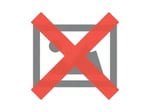
It depends which environmental problem you take. I can give you an answer for deforestation, because that was my topic. If you really want to stop deforestation in Tajikistan, the government should put controls on it, but that’s not what they do. There’s an authority managing the forests, but they neither have money nor computers. They still work with Soviet Union maps that are pretty useless. Actually, GIZ is doing a good job in the Pamir [Tajikistan’s highest mountain range], in the forest management, but it’s a pity that a company does this job. It should rather be the government.
One idea in order to stop deforestation could be to hand out coal for free or for a small fee. Only during a limited time span, let’s say 10-20 years. That’s the time it takes to properly manage the forest and achieve the first yields.
In order to save nature, you suggest burning fossil fuels?
Actually it’s what they do in Germany right now! In order to stop nuclear power and shift to renewables, you use coal as a transition technology. We can do the same here, but you would need some government and some money. However, it doesn’t make much sense to compare Tajikistan and Germany; they simply don’t have the same means…
You return to France tomorrow, by train. Will you change something after your stay here? What can westerners learn from Tajiks, in terms of sustainable lifestyle?
Apart from the chicken I mentioned, the Tajik food chain is very local. Everyone has a garden, growing their own food, even in Dushanbe [the capital]. It is so normal that no one even thinks about it. Like I said, the poor have no chance to pollute. We should take them as an example, in this sense. As soon as you have money, you start consuming, and that’s destructive. Saving your money, though, is no option because the bank will probably use it for environmentally harmful investments.
You don’t think a kind of sustainable wealth is possible?
No, money means consumption. We should learn to live with less.
Marjolaine, thanks for the insight into your work and all the best for a safe return to France!
Merci!
 Marjolaine Boitard is a “Business and Development“ graduate from Troix A Business School, Lyon, France, and continues to study “Geography and Environment“ at the University of Lyon. For one year, she conveyed a field study in Tajikistan on domestic fuel consumption for GERES. Knowtheflow-Blogger Moritz Buehner was lucky to interview her in Dushanbe on the last day before she returned to France. The picture shows her between the Afghan oven designer, with whome GERES cooperated (right), and Tajik workers who learn how to build it (left).
Marjolaine Boitard is a “Business and Development“ graduate from Troix A Business School, Lyon, France, and continues to study “Geography and Environment“ at the University of Lyon. For one year, she conveyed a field study in Tajikistan on domestic fuel consumption for GERES. Knowtheflow-Blogger Moritz Buehner was lucky to interview her in Dushanbe on the last day before she returned to France. The picture shows her between the Afghan oven designer, with whome GERES cooperated (right), and Tajik workers who learn how to build it (left).
Links
- GERES Tajikistan
- Report ENERGY EFFICIENT BUILDING METHODS FOR TAJIKISTAN by Naturvernforbundet
- GIZ Tajikistan (former GTZ, Gesellschaft für technische Zusammenarbeit)
- Espace Info Energie France (in French)
Images by Marjolaine Boitard for GERES Tajikistan.


